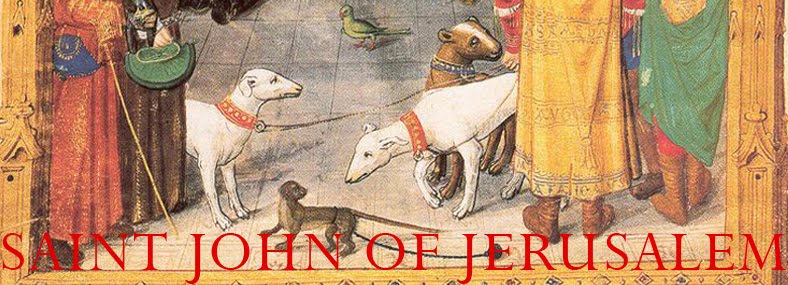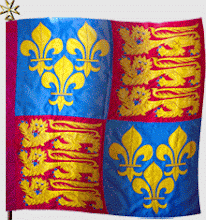St Edward was responsible most particularly for encouraging Marian devotion of this Land, gaining special privileges from the Pope for Her veneration in his Abbey at Westminster, a work continued by many kings, most notably Edward III and Richard II, who formally dedicated England as Our Lady's Dowry at Her shrine in this very abbey church, within sight of St Edward's relics. At his conversion Newman said that at last he was free to honour Mary – he was restored fully to the birthright of every Englishman.
SAINTS JOHN HENRY NEWMAN AND EDWARD THE CONFESSOR
A week ago today the Church and the world celebrated the raising to our altars of a great English saint, the first post-Reformation English confessor, a saint not a martyr, to be canonised. This is a joy for England, and an honour for the English Church.
The day of the canonisation was the feast of another great English saint, and a very significant anniversary, which passed almost unnoticed. It was the feast of St Edward the Confessor, the last of the great Anglo-Saxon kings, and the 750th anniversary of the translation of his holy relics to Westminster Abbey, and the dedication of his shrine behind the high altar on 13th October 1269, at which time King Henry III’s rebuilding of Edward’s Abbey was also consecrated.
The feast is kept as a solemnity by the Catholic Church within the City of Westminster, and this replaced the Sunday Mass in these parishes.
Edward had build the Abbey, dedicated then, as now, to Saint Peter, and lived to see it consecrated, lying in the church on his deathbed for the long (but in the circumstances necessarily truncated) ceremonies on 28th December 1065, two days before he went to his eternal reward. Little did he know that two centuries later it would become his shrine, and remains to this day one of the few shrines in Britain which has not been desecrated, but retains his hallowed remains in the original feretory, still greatly venerated. Indeed few such shrines survive intact in Europe.
St Edward was responsible most particularly for encouraging Marian devotion of this Land, gaining special privileges from the Pope for Her veneration in his Abbey at Westminster, a work continued by many kings, most notably Edward III and Richard II, who formally dedicated England as Our Lady's Dowry at Her shrine in this very abbey church, within sight of St Edward's relics. At his conversion Newman said that at last he was free to honour Mary – he was restored fully to the birthright of every Englishman.
Newman cannot have imagined, when he left Rome for England as a newly ordained priest in 1847, having sacrificed all his worldly goods and status, that one day he too would be raised so gloriously to our altars, nor can such an idea have seemed even possible as he celebrated his First Mass in England at the former Bavarian Embassy chapel of the Assumption Warwick Street at the close of that year, the church now in the care of the Ordinariate, under his patronage.
Most certainly he could not have known that he would follow so closely in the footsteps of St Edward and that the great church and Oratory he was to found in the Hagley Road Birmingham would one day become his shrine. At a worldly level it was indeed sad that Saint John Henry did not live to see the rebuilding and dedication of his beautiful church around the first smaller Oratory church which he had himself built, again so uncannily redolent of the architectural history of Westminster Abbey (albeit on a much shorter timescale), but none of that matters now. He is a saint for all Eternity.
Let England rejoice in her two great saints, both of whom spent their lives serving the spiritual needs of this people beneath Our Lady's mantle, and who between them span the whole modern era of our country. Let us never cease to implore their powerful intercession for our land and our Church. In the words of HRH Charles Prince of Wales, a kinsman of St Edward, following last week's canonisation, "(Newman) gave the Catholic Church renewed confidence as it reestablished itself in a land in which it had once been uprooted." Amen to that.
Saint Edward the Confessor, pray for us.
Saint John Henry Newman, pray for us.
Category (click to see all related):
Faith,
Saints of the Order













